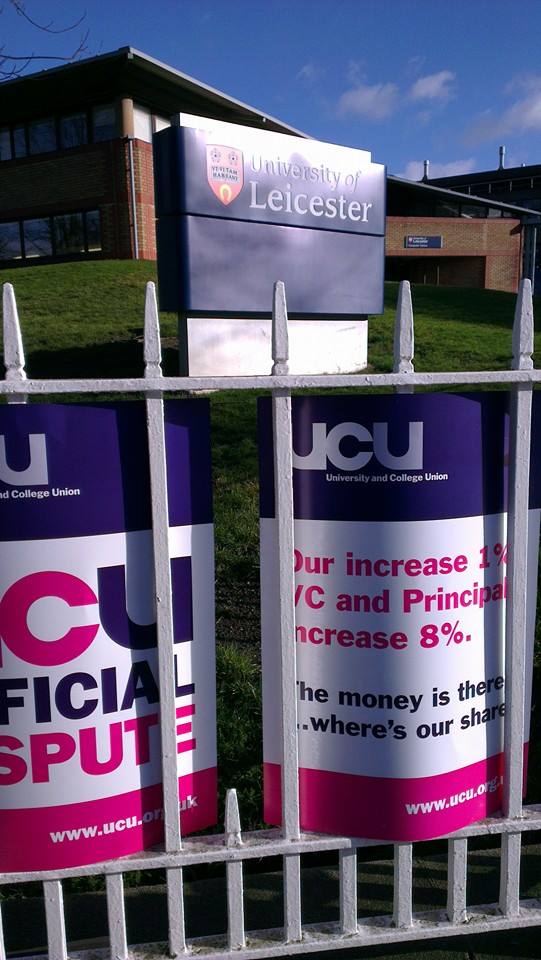Striking Staff Under Attack
By Kieran Flatt and Alistair Robinson
Last week, the University of Leicester became one of only 11 universities around the country to draw criticism over a decision to dock the full day’s pay of any staff member taking part in the current round of weekly, two-hour rolling strikes. UCU (University and College Union) have sought legal advice on the matter which would suggest that this action is illegal. The strikes are part of an on-going national pay dispute over decline in pay in higher education institutes. The next strike on Thursday 6th February will last all day.
Management at the University of Leicester join prestigious company and have been accused of bullying alongside management at De Montfort, Oxford Brookes University, Leeds College of Art, Glasgow Caledonian University, Staffordshire University, University of Chester, University of Dundee and the University of Surrey.
Following threats of legal action, universities such as Essex and Chester have rescinded their initial threats to cut pay for the whole day; and universities have borne the brunt of a rash of angry articles online. One lecturer said: “They’re going to dock staff a day’s pay and effectively lock them out so that they can’t teach or research!” with another anonymous member of staff iterating “This is, in effect, a lockout. It’s outrageous really.”
UCU’s official response has been that “…legal advice is that a two hour strike should lead to the deduction of two hours pay…” and they have also emphasised how “it can never be a reasonable response by a university to add to the regrettable disruption that students experience as a result of a legitimate trade dispute. On the contrary, a reasonable response would be to seek to minimise the disruption.”
Since 2008, there has been a pay freeze across universities nationwide, which, with inflation, has led to a real-terms pay-cut of 13.1% over the same period. Many members of staff believe that it is time for the cap to be lifted, calling it ‘unfair’ due to the freedom afforded upper-management to set their own pay-rises and bonuses to stay well ahead of inflation. The University has justified this, saying that ‘retaining staff in these roles is a priority’– a justification which union representatives point out fails to explain the Vice Chancellor’s massive 8% pay-rise in this, his final year before retirement. Friction is currently reaching a head. In the meantime with neither the University agreeing to pay the living wage, or the SU lending any practical support to staff in their struggle, the industrial action rumbles on.



